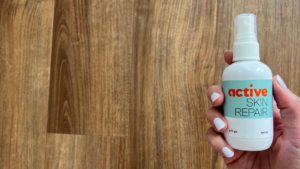SUPPLEMENTING IN PREGNANCY
I’ll cut out the introductory fluff and get straight to the meat: prenatal vitamins and supplements are incredibly important to supporting and SUPPLEMENTing pregnancy nutrition.
I emphasize supplement, because these recommendations are not meant to be the end all be all of your pregnancy nutrition – they are meant to be IN ADDITION TO a rockin’ nutrient-dense diet, adequate movement and exercise, sun exposure, sleep, joy, etc.
Below are my top four supplements with some brand recommendations (no financial affiliations with these particular brands) and a link to my online pharmacy where you can purchase them for 15% off (I do get a kick-back here).
-
- A PRENATAL VITAMIN: Pregnant women require higher doses of nutrients common to most multivitamins, so a traditional multi or even women-specific is still not adequate. Pregnancy requires increased levels of certain B-vitamins, iron (which actually shouldn’t be in your prenatal!), calcium, zinc, choline, the fat-soluble vitamins (A, D, E, and K), and maaaaany more which I will discuss more thoroughly in another post. Practitioner-grade prenatal vitamins reach these levels of nutrients, as well as use the proper FORM of the nutrient. Did you know that not all forms of B-vitamins are in their most bioactive state? For instance, the all-important folate (vitamin B9) is in its most physiologically available state when it is in the form of 5-methytetrahydrofolate (5-MTHF), also sometimes just called “methylated folate.” However, most store-bought prenatal vitamins contain vitamin B9 in its synthetic form, called folic acid. This is most important for people who have genetic mutations at the site where the enzyme is made that processes this vitamin (MTHFR mutations). For those people, folic acid does not process well. Almost everyone does better with methylated folate anyways, so I only recommend brands that contain this form of folate. These subtle, yet important differences in chemical structure are carefully considered in the formulation of practitioner-grade prenatal vitamins. For prenatal vitamins, I generally recommend the following brands: the Prenatal Multi by Needed (comes in capsules or powder), or the Optimal Prenatal by Seeking Health. In times of absolutely inability to stomach a capsule or even powdered multivitamin, the Organic Prenatal Complete formula by SmartyPants Vitamins can help bridge the gap. In my ideal world, a pregnant woman is only using SmartyPants prenatal vitamins during the time when they truly cannot tolerate or handle swallowing capsules, and then they switch back to a regular brand. Choose what works best for YOU!
- A PRENATAL VITAMIN: Pregnant women require higher doses of nutrients common to most multivitamins, so a traditional multi or even women-specific is still not adequate. Pregnancy requires increased levels of certain B-vitamins, iron (which actually shouldn’t be in your prenatal!), calcium, zinc, choline, the fat-soluble vitamins (A, D, E, and K), and maaaaany more which I will discuss more thoroughly in another post. Practitioner-grade prenatal vitamins reach these levels of nutrients, as well as use the proper FORM of the nutrient. Did you know that not all forms of B-vitamins are in their most bioactive state? For instance, the all-important folate (vitamin B9) is in its most physiologically available state when it is in the form of 5-methytetrahydrofolate (5-MTHF), also sometimes just called “methylated folate.” However, most store-bought prenatal vitamins contain vitamin B9 in its synthetic form, called folic acid. This is most important for people who have genetic mutations at the site where the enzyme is made that processes this vitamin (MTHFR mutations). For those people, folic acid does not process well. Almost everyone does better with methylated folate anyways, so I only recommend brands that contain this form of folate. These subtle, yet important differences in chemical structure are carefully considered in the formulation of practitioner-grade prenatal vitamins. For prenatal vitamins, I generally recommend the following brands: the Prenatal Multi by Needed (comes in capsules or powder), or the Optimal Prenatal by Seeking Health. In times of absolutely inability to stomach a capsule or even powdered multivitamin, the Organic Prenatal Complete formula by SmartyPants Vitamins can help bridge the gap. In my ideal world, a pregnant woman is only using SmartyPants prenatal vitamins during the time when they truly cannot tolerate or handle swallowing capsules, and then they switch back to a regular brand. Choose what works best for YOU!
-
- OMEGA-3 FATTY OILS BUT MOSTLY DHA: As discussed in my infant supplementation article, DHA is an omega-3-fatty acid that is incredibly important for fetal, infant, and pediatric brain development – and thus in pregnancy, I hold this nutrient in very high regard. For most women (there are always exceptions, and this is why seeing a practitioner to discuss these ideas is vitally important), I recommend high doses of DHA in pregnancy and breastfeeding. This dose is somewhere between 1-3g of DHA per day, with a corresponding ratio of EPA (the other main omega-3 fatty acid). Building a baby is one thing – but let’s not forget the placenta. Around two pounds, the placenta is an entire ORGAN that is created during pregnancy, and then disposed of. The only organ that the human body makes and expels in this fashion. Then, if you breastfeed, DHA passes easily into breastmilk to aid the baby’s growing brain, so demands continue to be high even once the baby has been born. DHA supplementation is also protective against postpartum mental health issues like postpartum depression or postpartum anxiety. My recommendation for DHA is ProOmega2000 by Nordic Naturals because it is fairly easy to obtain the optimal dose of DHA with this particular product, and I trust the sourcing of Nordic Natural’s fish. If you are vegan, Nordic Naturals makes an algal DHA product that I like, although be ready to swallow up to 8 gel capsules per day to reach the desired dose. Of course there are food-based sources of DHA that can also be added in so that the gel capsule intake need not be so high – work out a sustainable routine that works for you.
- OMEGA-3 FATTY OILS BUT MOSTLY DHA: As discussed in my infant supplementation article, DHA is an omega-3-fatty acid that is incredibly important for fetal, infant, and pediatric brain development – and thus in pregnancy, I hold this nutrient in very high regard. For most women (there are always exceptions, and this is why seeing a practitioner to discuss these ideas is vitally important), I recommend high doses of DHA in pregnancy and breastfeeding. This dose is somewhere between 1-3g of DHA per day, with a corresponding ratio of EPA (the other main omega-3 fatty acid). Building a baby is one thing – but let’s not forget the placenta. Around two pounds, the placenta is an entire ORGAN that is created during pregnancy, and then disposed of. The only organ that the human body makes and expels in this fashion. Then, if you breastfeed, DHA passes easily into breastmilk to aid the baby’s growing brain, so demands continue to be high even once the baby has been born. DHA supplementation is also protective against postpartum mental health issues like postpartum depression or postpartum anxiety. My recommendation for DHA is ProOmega2000 by Nordic Naturals because it is fairly easy to obtain the optimal dose of DHA with this particular product, and I trust the sourcing of Nordic Natural’s fish. If you are vegan, Nordic Naturals makes an algal DHA product that I like, although be ready to swallow up to 8 gel capsules per day to reach the desired dose. Of course there are food-based sources of DHA that can also be added in so that the gel capsule intake need not be so high – work out a sustainable routine that works for you.
-
- A HIGH-DOSE BROAD SPECTRUM PROBIOTIC: The last 15 years have been all about the microscopic-yet-fundamental world of our commensal relationship with bacteria. For every 1 human cell, we have 10 bacterial cells. These things are everywhere, and we love them. From infectious disease risk reduction to autoimmune disease prevention to assisting in maintaining healthy weight, our bacterial ecology is the crux of many acute and chronic illnesses. The uterus was once thought to be a sterile environment, but that has been shown to be false. The amniotic waters that your baby develops in are alive and well with good, non-pathogenic bacteria – amongst other things. This is baby’s first stage of colonizing their own bodies and starting their own microbiome – from what is floating around in the amniotic sac, and thus ingested. The bacteria that is found here, comes from the mother. Additionally important – if baby is born vaginally, the pass through the vaginal canal colonizes baby even further, and is one of many reasons why vaginal birth is an important supporter of health. If mom has a good set of microflora in her gut, she is likely to have a similar situation in her vaginal canal.
Taking oral probiotics is one way to help support the crowding-out of pathogenic bacteria in the pregnant woman’s body, thus allowing the “good” bacteria to take hold. The very BEST way to support healthy microbiome diversity is by choosing to eat, or not eat, certain FOODS. The food you eat becomes the food the bacteria in your gut eat. Generally, pathogenic bacteria thrive off high-sugar foods, and non-pathogenic (aka good) bacteria thrive off of more complex starches that come from plant-based diets. That is not to say that meat is not encouraged – in my practice, it is. Plant-based just means that there are more plants than animal products in the diet overall, which is encouraged. Choosing a high-dose, broad spectrum probiotic will aid this process and is still recommended, even though it is not the most efficient method of affecting the microbiome. My recommended brands of probiotics are not as specific as the prior supplements. I strongly suggest switching brand/type every time you finish a particular bottle, so as to obtain and reap the benefits of many different strains of bacteria. I recommend choosing from practitioner-grade companies like Klaire labs (now called SFI), Pure Encapsulations, or Ortho Molecular Products. If I had to pick just one, I’d choose the Klaire/SFI Ther-Biotic Complete. This can be found on my Fullscipt in the link at the bottom of this age. When you are looking at probiotics, search for a product that contains multiple strains of Lactobacillus and Bifidobacterium, in a dose between 20-50 CFU (colony-forming units). Always eat probiotics with food, unless directed otherwise by your practitioner. It’s also beneficial to mix up your brands and types each bottle!
- A HIGH-DOSE BROAD SPECTRUM PROBIOTIC: The last 15 years have been all about the microscopic-yet-fundamental world of our commensal relationship with bacteria. For every 1 human cell, we have 10 bacterial cells. These things are everywhere, and we love them. From infectious disease risk reduction to autoimmune disease prevention to assisting in maintaining healthy weight, our bacterial ecology is the crux of many acute and chronic illnesses. The uterus was once thought to be a sterile environment, but that has been shown to be false. The amniotic waters that your baby develops in are alive and well with good, non-pathogenic bacteria – amongst other things. This is baby’s first stage of colonizing their own bodies and starting their own microbiome – from what is floating around in the amniotic sac, and thus ingested. The bacteria that is found here, comes from the mother. Additionally important – if baby is born vaginally, the pass through the vaginal canal colonizes baby even further, and is one of many reasons why vaginal birth is an important supporter of health. If mom has a good set of microflora in her gut, she is likely to have a similar situation in her vaginal canal.
-
- VITAMIN D3: Vitamin D3 is a key nutrient for whole-body health. It is protective of the immune system, bones, and brain – amongst much more. It’s generally found in prenatal and general multivitamins, is sometimes found fortified in breads or cereals, and is thought to be easily obtained by the sun, but in fact – most Americans are deficient in vitamin D3. The darker your skin tone, the more likely you are deficient in vitamin D3, as well.
I always suggest testing levels of vitamin D3 before supplementing, because although vitamin D3 toxicity is rare, this is a fat-soluble vitamin that can reach toxic levels in the body. Other vitamins, like vitamin C or the B vitamins, are water-soluble and thus are excreted easily and quickly through urine. Fat soluble vitamins (A, D, E, K – think, All Dinosaurs Eat Kale), stick around longer in the body and thus allow for levels to build up over time, sometimes reaching toxicity. This is why vitamin A is always talked about as a point of concern during pregnancy, as well. It’s a vital nutrient, but high levels have been found to be teratogenic, aka cause birth defects. And now we know that because it is a fat-soluble vitamin, it is not easily excreted from the body which means we need to be extra careful with dosing. My recommendations around vitamin D3 are to test levels to understand your baseline level (ideally this level is 60-80ng/mL) and then adjust your daily dosing accordingly. In choosing a product, I prefer liquids because drop-dosing is easy to adjust and compliance with my patients is high. Look for a brand like Ortho Molecular Products or Pure Encapsulations that has a dose of 1,000 IU (25mcg) per drop. My top overall choice is the Vitamin D3/K2 by Orthomolecular. Sometimes you may dose 2,000 IU per day, other times you may take acute doses of 15,000 IU for a short period of time due to illness – and having a product where adjusting your dosing is easy is very nice!
- VITAMIN D3: Vitamin D3 is a key nutrient for whole-body health. It is protective of the immune system, bones, and brain – amongst much more. It’s generally found in prenatal and general multivitamins, is sometimes found fortified in breads or cereals, and is thought to be easily obtained by the sun, but in fact – most Americans are deficient in vitamin D3. The darker your skin tone, the more likely you are deficient in vitamin D3, as well.
IN CONCLUSION:
-
- Choose a practitioner-grade prenatal vitamin containing the optimized forms of nutrients so that your body can utilize them better, with less effort
-
- Choose a high-DHA containing omega-3-fatty acid supplement sourced from wild-caught fish and tested third-party for heavy metals
-
- Choose a multi-strain, high dose probiotic of 20-50 billion CFU and take it with food, mixing up brands each time you finish a bottle
-
- Choose a liquid-based vitamin D3 so your dosing can be easily obtained and adjusted
DISCLAIMER: This article is not meant to be interpreted as medical advice. This is purely for informational and educational purposes only. Milk Medicine supports body autonomy, body literacy, open access information, and informed consent. The health of you and your family is your own responsibility. As always, discuss any medical questions or concerns with your physician or pediatrician.
FOR 15% OFF THE SUPPLEMENTS MENTIONED IN THIS ARTICLE, VISIT MY ONLINE PHARMACY, HERE.




